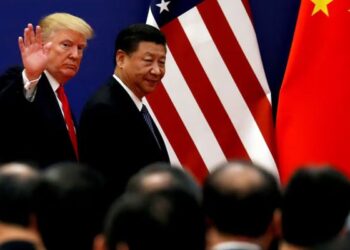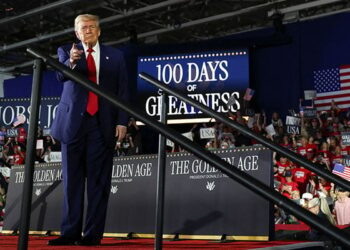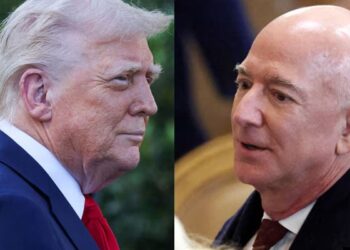- Beijing is set to introduce tariff exemptions for eight semiconductor-related products.
- China is considering these exemptions in light of weak demand and deflation worries.
- The exemptions could alleviate some pressure on U.S. markets and provide relief for the White House.
China is contemplating lifting its 125% tariffs on certain U.S. imports and is soliciting businesses to submit lists of products that might qualify for relief. This marks a significant indication that Beijing is concerned about the potential negative impacts of its trade war with the U.S.
According to a source who requested anonymity, a task force from the Ministry of Commerce is gathering proposals for which items could be exempt from tariffs. Reports from financial publication Caijing suggest that eight semiconductor-related goods, excluding memory chips, are under consideration for exemptions.
A widely circulated list on social media and amongst businesses and trade organizations features 131 product categories that could be eligible for exemption. However, Reuters has not confirmed the accuracy of this list, which includes items ranging from vaccines and chemicals to jet engines.
Repeated inquiries to China’s customs department went unanswered, and neither the customs department nor the Ministry of Commerce responded to faxes seeking clarification.
Bloomberg initially reported on Friday that China was evaluating potential tariff exemptions.
The proposed exemptions signal, much like in Washington, that Beijing is genuinely worried about the economic hardships spreading throughout the country as China and the U.S. drift apart economically.
While U.S. officials have expressed that the current situation is untenable and have already extended tariff exemptions to select electronic goods, China has consistently indicated its readiness to endure until the U.S. withdraws its tariffs.
However, despite this tough stance, China’s economy appears to be nearing a state of deflation, grappling with weak demand and sluggish consumer spending and confidence that have yet to fully rebound since the pandemic.
The Chinese government is urging exporters affected by tariffs to shift their focus to domestic markets. Yet, firms report that profit margins are declining, demand remains weak, and customers are increasingly unreliable.
Implementing exemptions could provide a significant relief gesture, as it would allow for a degree of resumed trade, reducing the economic strain on the U.S. and easing burdens on the White House.






